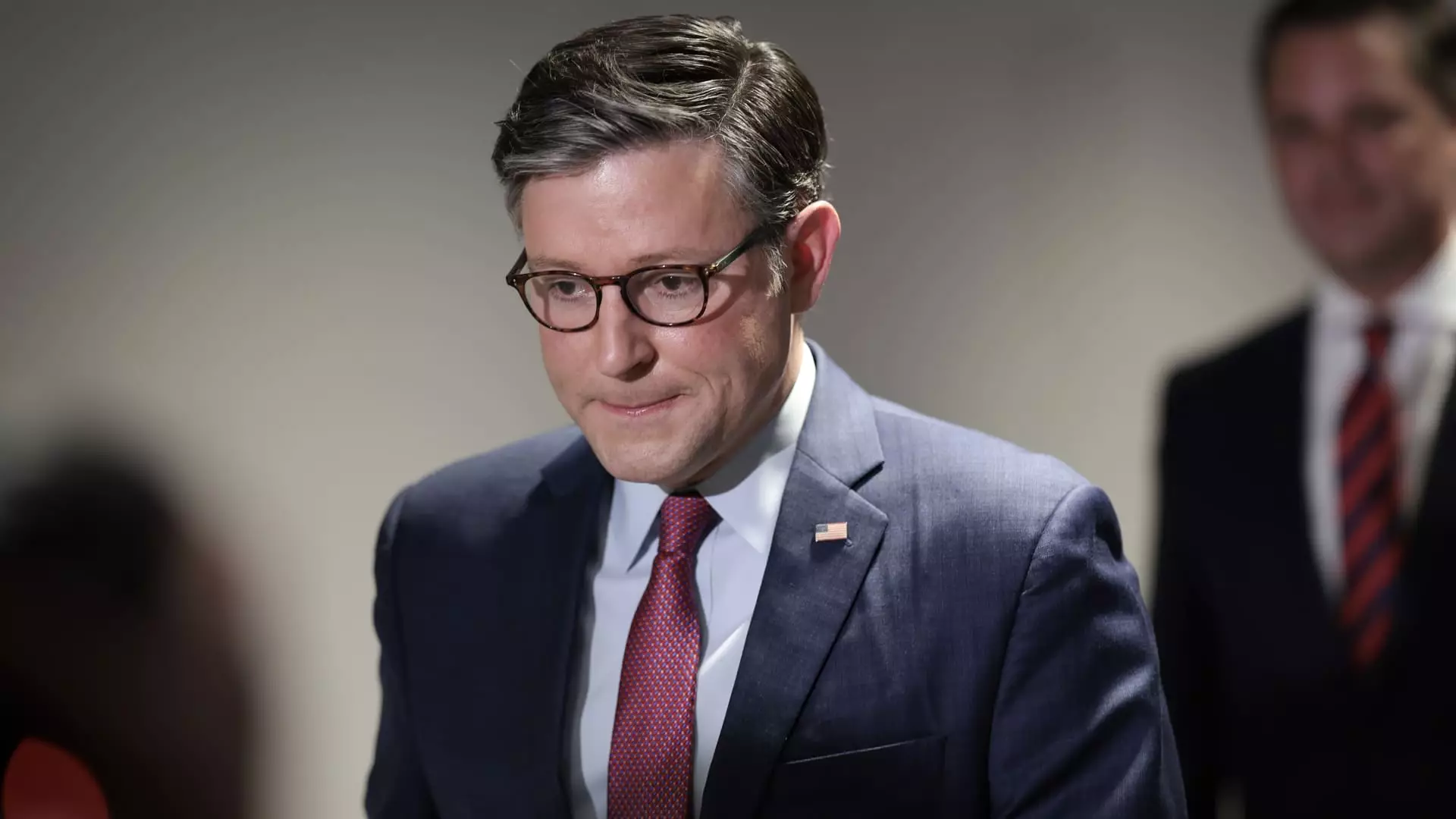In a pivotal moment for Congressional dynamics, Republican House Speaker Mike Johnson has unveiled a revised temporary government funding proposal that signals a strategic pivot away from hardline partisan positions. Intended to avert a government shutdown, this proposal echoes the spirit of bipartisan cooperation, albeit with a few critical shifts that acknowledge the current political landscape. Johnson’s decision to forgo elements such as the SAVE Act, which aimed to bolster election security in a manner closely aligned with former President Trump’s vision, illustrates the complexities of navigating a Congress marked by stark divisions.
This initiative emerges in a precarious period for the federal government, as lawmakers face a rapidly approaching deadline to secure funding. With just eight days remaining before the potential onset of a government shutdown on October 1, the urgency is palpable. Previous proposals had aimed for a six-month funding extension but faltered amidst internal divisions within the GOP and staunch opposition from Democrats. Johnson himself admitted that an alternative route was necessary given the circumstances, creating a proposal characterized as “very narrow” and focused solely on essential funding to maintain government operations.
Johnson’s recognition of the political ramifications of a shutdown is particularly telling. With significant elections looming in November that could reshape the control of both Congress and the presidency, the stakes are especially high. The Speaker’s words resonate with a sense of caution: “shutting the government down less than 40 days from a fateful election would be an act of political malpractice.” In this light, maintaining government continuity appears paramount, transcending rigid party ideologies.
The revised bill, projected to fund the government only until December 20, is stripped of the controversial SAVE Act. This proposal, born out of Trump-era politics, sought to impose stringent voter registration requirements based on citizenship proof that ignited fierce debates over voter suppression and election integrity. By omitting this contentious element, Johnson is not only seeking to gain Democratic support but also attempting to reel in a fractured Republican caucus.
Additionally, the proposed funding includes crucial allocations, such as $231 million for the Secret Service—a reflection of the agency’s pressing need for resources in light of ongoing threats. Notably, the previous iteration of Johnson’s funding proposal would have established funding levels well into the future, potentially locking in fiscal decisions for a newly elected governmental body. The current approach, however, emphasizes flexibility and the opportunity for the incoming Congress to reset priorities.
What remains abundantly clear is that Johnson’s conciliatory approach may have mixed implications for his leadership within the House. The history of Republican leadership is punctuated by tensions between moderate factions willing to compromise and more hardline elements staunchly opposed to collaboration with Democrats. Johnson’s adjustments—while tactically aimed at avoiding immediate crises—might alienate members who favor a more stringent stance on key issues such as the SAVE Act.
Despite earlier resistance, it seems Democrats have seized upon the opportunity presented by Johnson’s new proposal. Senate Majority Leader Chuck Schumer’s enthusiasm at a recent press conference underscores the bipartisan allure of the revised funding plan. Schumer’s acknowledgment that only a harmonious budget agreement could stave off a government shutdown encapsulates the urgency of bipartisan collaboration during this critical phase.
Mike Johnson’s revised government funding proposal serves as a crucial inflection point in a contentious political era. This decision not only reveals the complexities of governing in a divided Congress but also portrays a leader potentially willing to prioritize pragmatic solutions over uncompromising ideologies.
The immediate challenge will be to navigate the murky waters of partisan interests while ensuring that essential government operations are maintained. Johnson’s political acumen will be tested as he balances the demands of his party’s base with the imperative of legislative collaboration. With the backdrop of an approaching election, the stakes remain high—not just for immediate governance but for the future direction of the Republican Party and its capacity to operate within the broader political system. In striving for short-term measures to avert a shutdown, Johnson’s actions may very well determine the future landscape of Congressional cooperation in a fraught political environment.


Leave a Reply